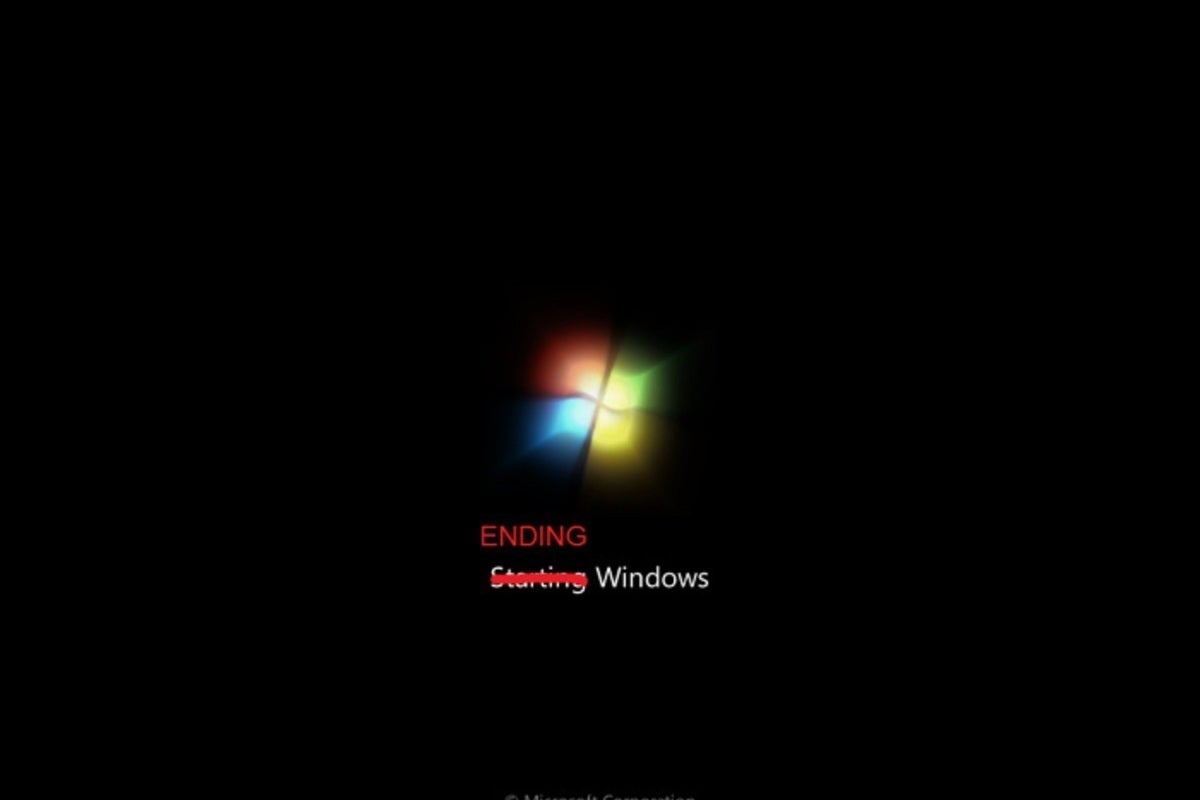Windows 7 end of support: Separating the bull from the horns

Credit to Author: Woody Leonhard| Date: Wed, 15 Jan 2020 13:20:00 -0800
No, Windows 7 isn’t dead.
No, you don’t need to buy a Win10 computer.
No, you don’t need to upgrade.
No, you don’t need to install the latest Win7 patches right away.
No, Microsoft isn’t withdrawing its unofficial nod-and-a-wink free upgrade from Win7 to Win10. At least, not right away.
No, the old Win7 patches aren’t disappearing.
No, your Internet Service Provider won’t kick you off your network for using Win7.
No, we don’t know if Microsoft will release any more free security patches for Windows 7. They did for XP when WannaCry appeared, years after XP went end-of-life, but past performance isn’t necessarily indicative of future results.
No, running Win7 after Jan. 14 doesn’t “put [your] company and staff data at risk, as well as that of suppliers, partners, and customers, because security patches will no longer be available.”
No, your Win7 computer won’t be pwned by the bad guys any time soon, if you exercise even a modicum of common sense.
No, Office 2010 won’t stop working on Win7. In fact, it’ll keep getting patches (on an unpatched Win7!) until Oct. 13.
No, Microsoft Security Essentials won’t get updated. You need to move to a different antivirus.
Yes, you need to stop using Internet Explorer. But you likely made that switch years ago.
Yes, you can buy official Win7 security patches – sign up for the Extended Security Updates – but the first year costs $61 per system and you have to jump through a lot of hoops (see Gregg Keizer’s Last-minute answers about Windows 7’s post-retirement patches and Susan Bradley’s Hunting for an elusive Win7 ESU license, paywalled).
Yes, there are alternative ways to patch Win7.
Yes, if you tell the full-page “Your Windows 7 PC is out of support” advertisement – the screenshot above – to go away (“Don’t remind me again”), it really does go away. At least for now.
Yes, all of your major software – notably including all major browsers – will continue to work with Win7, at least in the short term. Turbotax won’t work next year, but that’s their problem, and it works fine this year for tax year 2019.
Yes, the new “Chredge” version of Edge will run on Win7. Nobody knows how long MS will continue to support it.
Yes, expect a lot more annoying, wildly inaccurate Win7 misinformation from many quarters.
That should cover about 90% of the drivel currently being bandied about regarding Windows 7.
Here’s what Microsoft says about the Jan. 14 end-of-life:
Microsoft made a commitment to provide 10 years of product support for Windows 7 when it was released on October 22, 2009. This 10-year period has now ended, and Microsoft has discontinued Windows 7 support so that we can focus our investment on supporting newer technologies and great new experiences. The specific end of support day for Windows 7 was January 14, 2020. Technical assistance and software updates from Windows Update that help protect your PC are no longer available for the product. Microsoft strongly recommends that you move to Windows 10 to avoid a situation where you need service or support that is no longer available.
Gag me with a RAMDAC. Microsoft hasn’t provided technical assistance for Win7, officially, since January 2015. And the last time we had a useful Win7 software update was… a decade ago? Sure feels like it. Service Pack 1 was released on Feb. 22, 2011.
Just because we won’t get free security patches in February doesn’t mean you should stampede to get the January patches installed now. Nothing’s going away. Your files are still where you left them. Chillax.
Back in 2018, over on AskWoody, we started looking at a Win7 official patch alternative called 0patch. They’ve been “micro-patching” Windows – unleashing specific, narrowly focused fixes for Windows vulnerabilities – since 2016. Mitja Kolsek, CEO of Acros Security and co-founder of 0patch says:
We expect the first micropatches [for Win7/2008 R2] will be issued sometime after the February Patch Tuesday, after we have reviewed what was patched in Windows 7 ESU, and whether any other vulns might affect Windows 7 / Windows Server 2008 R2.
There are alternatives.
And finally, Yes, you should move to something other than Win7. Eventually.
We take Seven Semper Fi seriously on AskWoody.com. See Susan Bradley’s no-bull FAQ. And Thx @LHiggins.